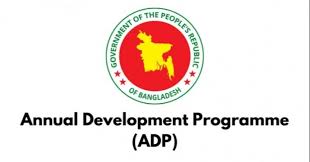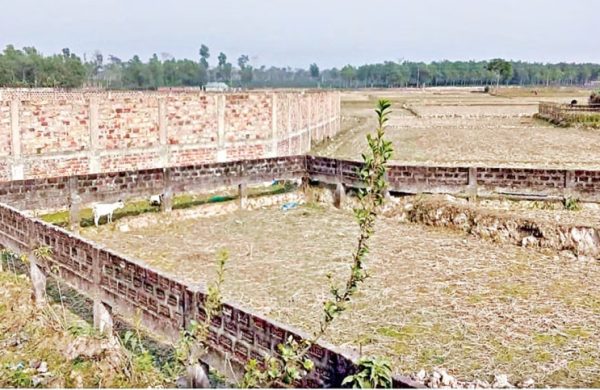ADP set to shrink significantly in interim govt’s revised budget
- Update Time : Sunday, December 29, 2024

TDS Desk:
With an eye on terminating “unnecessary and politically motivated” development projects undertaken by the discredited Awami League administration, the interim government adopted a ‘go slow’ policy in approving disbursement of funds for projects enlisted in the annual development programme.
This led to the lowest implementation rate of the ADP for at least a decade, over the first five months of the current fiscal, that commenced last July 1.
The implementation rate in the first five months of the current fiscal year was just 12.29%, the lowest for the equivalent period in over a decade.
The ADP implementation in the 2023-24 fiscal was its lowest in four years, at just 81 percent. In the previous 2022-23 fiscal, the ADP-execution rate was recorded at 85.2 percent.
Meanwhile, the lowest ADP execution under the Awami League regime’s 15 years in office was the 80.4 percent recorded in the 2019-20 fiscal – when COVID-19 crippled economic activity in the second half of the financial year. Thereafter, there had been a better performance in the subsequent three fiscals: FY2021, FY2022, and FY2023.
After the fall of the Awami League government on August 5 in the face of a student-led uprising, the interim government led by Nobel Laureate Professor Muhammad Yunus was sworn in on August 8.
According to the Implementation Monitoring and Evaluation Division (IMED), ADP implementation during the July-November period was 17.1% in the last fiscal, 2023-24, and 18.4% in 2022-23. Versus just 12.3% in the current 2024-25 fiscal, of the Tk 278,288.90 crore ADP passed by the AL government in its last budget.
IMED data shows that ADP spending in the July-November period amounted to Tk34,214.55 crore, compared to Tk46,857.38 crore in the equivalent period of the previous fiscal year.
IMED officials cited delays in the review the interim government had initiated into all ongoing and newly proposed projects, along with increasing delays in the release of funds, as factors contributing to the slowdown in ADP implementation. Additionally, many contractors abandoned projects after the interim government assumed power in early August.
Planning Adviser Dr Wahiduddin Mahmud, while admitting the lacklustre ADP implementation rate, said the interim government would announce its revised budget, effectively an emergency budget necessitated by the change in government, for the 2024-25 fiscal by February.
Dr Wahiduddin said that after the revised budget and revised ADP, the Planning Ministry will be able to plan better to complete the projects it chooses to keep, ultimately. He also commented that if employment is not increased, the suffering of the people will not be reduced.
Meanwhile, low ADP implementation rate and stuttering private sector investment is moving the country towards an economically stagnant situation.
The Planning Adviser, in a recent briefing, vowed to go faster in implementation of the ADP aiming to create employment and give a boost in money circulation in the rural areas.
He apprehended that without this move, which would also encourage the private sector to come forward with their fresh investments, the country might even face an economic recession.
Accordingly the Planning Ministry has canceled several projects initiated during the Awami League government.
The scrapped initiatives include several infrastructure, health, and education projects that were significant components of the Awami League’s development agenda. Among the prominent cancellations are a rural connectivity program to build roads and bridges in remote areas, urban modernization schemes, and energy and transport infrastructure projects.
The Planning Ministry cited inefficiencies, lack of feasibility, and allegations of mismanagement as primary reasons for axing the projects.
A senior ministry official stated, “Many of these projects were approved without thorough evaluation, leading to wasteful expenditure and suboptimal outcomes.”
The Planning Ministry outlined three key reasons for the cancellations:
Budgetary Constraints: Global economic challenges, rising inflation, and increasing debt burdens have tightened the government’s fiscal space. The ministry argued that reallocating resources to more critical sectors, such as food security and climate adaptation, was necessary.
Inefficiencies and Alleged Irregularities: Some projects reportedly suffered from inflated budgets, lack of transparency, and delays in execution. These issues, combined with the slow ADP implementation, created a bottleneck in the overall development process.
Realignment of National Priorities: The government seeks to prioritize initiatives that directly address economic recovery and sustainable development, which they claim some of the canceled projects lacked.
Development experts warn that the dual challenges of canceled projects and slow ADP implementation could hinder Bangladesh’s progress toward achieving the Sustainable Development Goals (SDGs). Key areas such as poverty alleviation, education, healthcare, and infrastructure development are likely to suffer.


















